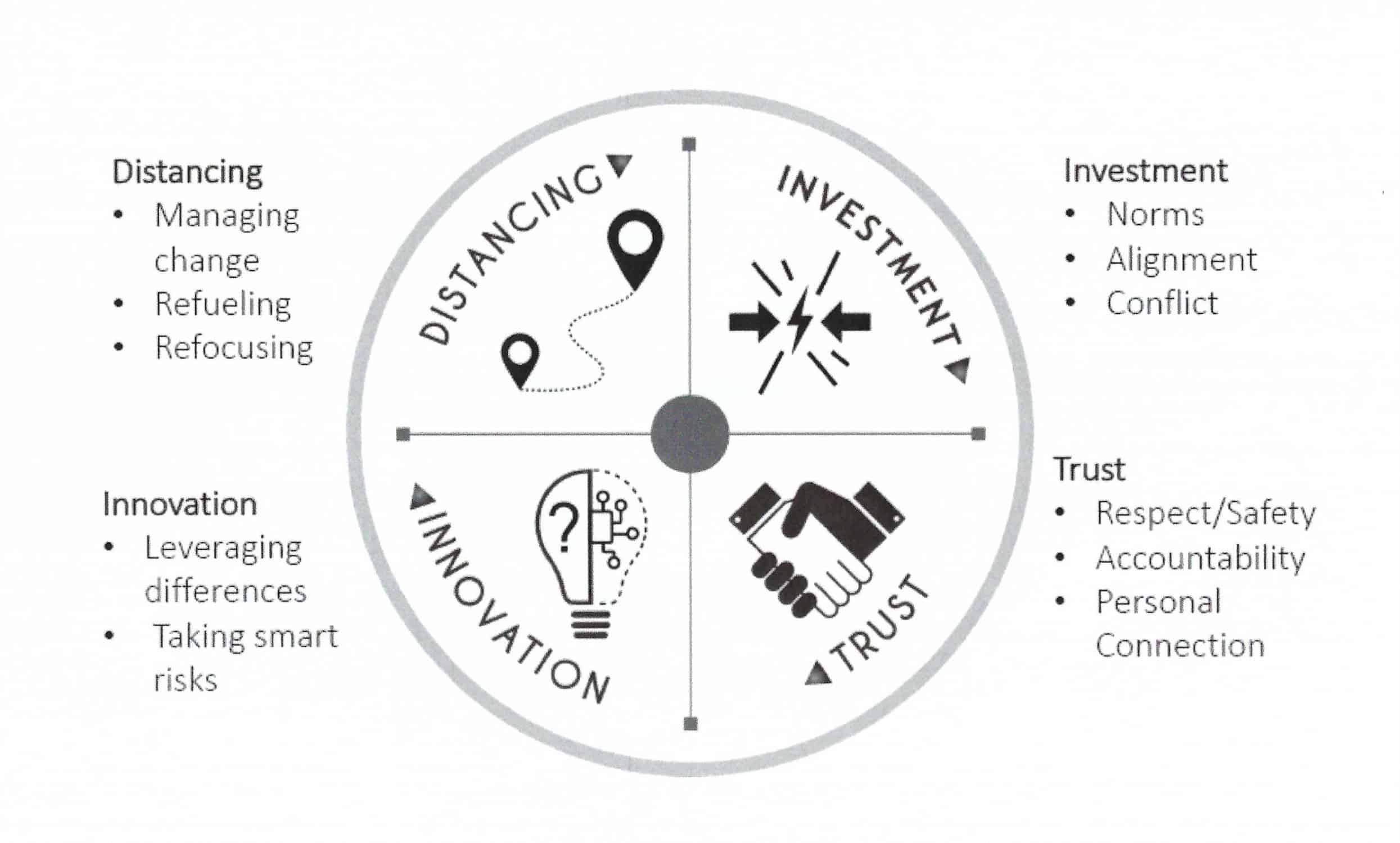The tasks of managing change effectively are simple. They require some distancing as teammates step back to gain perspective on the situation. Begin with mourning the loss. Since this depletes energy, find a way to refuel. Once refueled, refocus on the new circumstances, whatever they may be. Depending on the gravity of the change, these tasks may be easier said than done. If you move forward without having done them, you inherit the pain into the next stage of the team’s lifespan.

The stage that follows distancing requires reinvestment in the team’s norms, values and direction. This stage is ripe for disagreement since teammates are still emotionally raw. Unless there is a common goal supported by healthy norms, differences of opinion can send the team into “us vs. them” factions.
The stage that follows investment requires trust. Trust is the consequence of respect, connection and accountability. If disrespect or lack of accountability is tolerated, any fractures in the team will be magnified. This can undermine the foundation of psychological safety required for teammates to stretch themselves and make creative contributions.
The stage that follows trust enables innovation. It is highly unlikely that a teammate will be willing to serve up a novel idea when he or she has been punished in the past for thinking differently. Discovery is only possible when team norms embrace diversity and change. Otherwise, the energy of the team is consumed in keeping things the same, whether that’s healthy or sick.
Healthy teams understand the continuous nature of change. They accept the discomfort that accompanies coping in exchange for the energy that comes from renewal. Rather than reactively enduring change, they proactively invite transformation. They concede what’s been lost and adopt its replacement. They clarify new direction and hold themselves accountable for professionalism. They use collaboration as a platform for growth and invite the next round of changes their exploration ignites.
The consequences of resisting change last far beyond the moment of the transition. Like every stage of human development, successes and failures in any stage of a team get inherited into the next stage. In teams, everything is delivered to the future.
